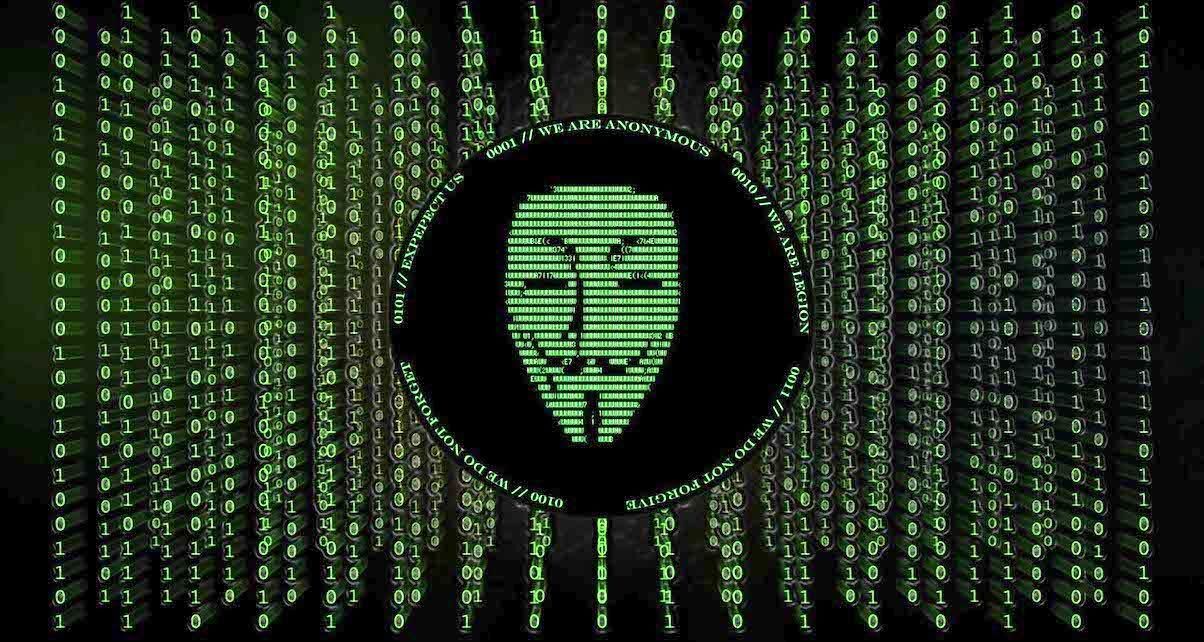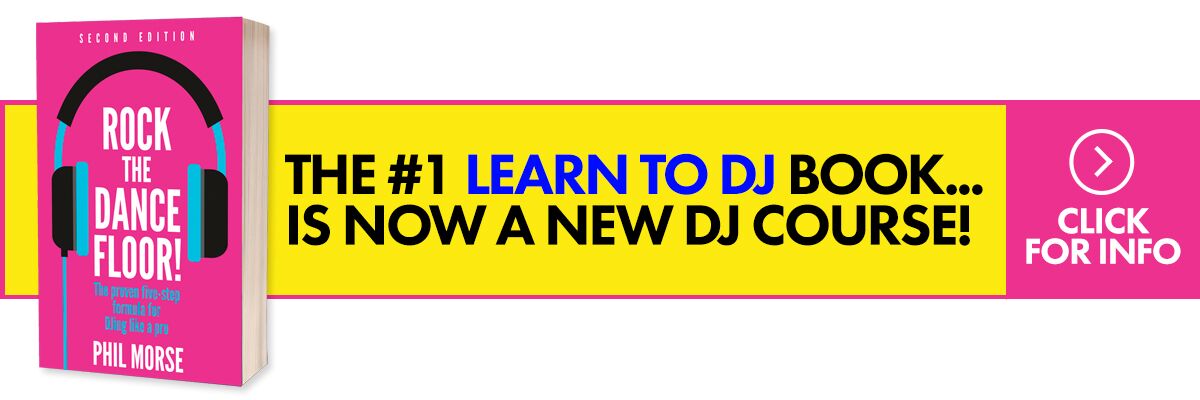You’re finally on your way to the big gig that you’ve been looking forward to for months. A lot of preparation has gone into it and it’s a big payday for you. You rock up, confident and go to load your DJ laptop up and you can’t get into it; it’s all locked. There is some text on-screen informing you that you have been hacked, your data has been encrypted and that you have to pay to unlock it all. You try everything, but no dice and time is running out. How much would you be prepared to pay to unlock it all then and there?
The example given above is a drastic one but with ransomware becoming more common, the scenario is not unrealistic. However, like the myriad other less drastic but still disruptive “crimes” that may be committed against you in cyberspace, it is one that can be avoided if you take the right precautions to shore up your security and protect your DJ data.
Here are six basic measures you can take to protect your identity and the security of your DJ data and financial information:
1. Manage your passwords better
The longer you keep using the same password, the longer someone else has to crack it. By the same token, if someone else has access to your account, they also have longer to keep using it maliciously. This could mean that someone is downloading tracks from the download pool that you are paying a decent chunk of money for. Digital download pools like zipDJ watermark their tracks, so if the hacker is also distributing the tracks online, your metadata is attached to those tracks and, you guessed it, you will be to blame for their unlicensed distribution.
Your password is your responsibility. You don’t have to change passwords every week, but if you’ve been using the same ones for years, it’s certainly time for an update. Set a to-do note to remind you to change your password once every few months and don’t use the same password for everything. If you do this and someone breaks into one of your accounts, they could break into all of them. Of course, it’s difficult to remember loads of different passwords and is annoying to keep having to request to reset your passwords each time you forget them. Password vaults like 1Password and LastPass are tidy options for storing your login information securely.
It’s of paramount importance to keep your primary email account secure. Most of the services that you use will be linked to this email address to help identify you and to send you password resets. If this email account is compromised, you could soon have all the services that you have linked to this account compromised. You could be revoked access to your DJ software if someone has managed to get hold of your licence keys through your email. Remember, you are only able to authorise a certain number of computers per licence. If they deauthorise yours and then you get to a gig and nothing works, what are you going to do?
If your email is hacked, your contact list could also be stolen. It can take years of hard work to build up a mailing list so don’t make it easy for cyber thieves!
2. Watch out for phishing scams to avoid identity theft
If you didn’t already know, phishing is when someone tries to get your info by pretending to be someone or a representative of an organisation that you trust. Phishing is usually conducted via electronic communication such as email, instant message, and so on. Common phishing scams might include a convincing email from “iTunes” asking you to confirm your username and password for security purposes. Doing this hands your account over to the hackers and it can take time to get it back under your control – time that is better spent hustling for gigs and preparing playlists…
It’s too easy to say “don’t fall for it” as these scams can be convincing. The key rule here is never to click any links that you didn’t request because emails can easily be forged and direct you to fake websites. Clicking such links can also start the download process for ransomware. If you are concerned that say, Pulselocker, is trying to get in touch, why not send their support team a direct message via their website? When doing this, be sure to tell them of the email that you received so that they can warn others of the attempted scam.
The hackers that took over David Guetta’s Twitter account last year could well have used this method. In that case, the outcome wasn’t at all drastic, they seemed to be hacking for fun. However, in some cases, things can take a much nastier turn. Last year again, Paul van Dyk was hacked and racist messages were posted on his Twitter account, as well as his credit card information on his personal website. Detroit club Populux was shut down for good over a similar scandal. Fixing these issues is hard enough when you have a full-scale PR team to firefight for you. Imagine how easy it would be for a jealous local rival to destroy your mobile DJ business…
3. Be wary of anyone who contacts you by phone asking for your personal information
Companies don’t cold call you asking for complete information verifying that they are speaking with you. These types of call are usually scams. If you have any suspicions, hang up and call the company’s official contact number and see if their phone inquiry was above board. There is a common scam where “IT support” will call your phone number from your “internet service provider” and ask you to perform several tasks on your computer to help them get rid of a virus or something.
It might sound convincing, but doing this can give them free rein over your computer. They can lock you out for good and hold you to ransom for it if they want. Most likely, they will secretly download something that allows them to track your key movements. This will give them full access to any accounts that you log into. When hackers have these details, they sell off your subscription accounts online. Before you know it, you could find yourself locked out of or banned from these services and therefore, unable to perform at pre-arranged gigs.
4. Don’t let anyone plug their USBs into your laptop
Don’t, for any reason, allow someone else to plug a USB into your DJ laptop. First of all, USB as a format is inherently insecure – even if they are innocently asking to do so with no ulterior motive, their security might have been unknowingly compromised. It doesn’t matter if you have otherwise tight security, all of your data is now at risk. On the flip side, someone might set out to intentionally infect your computer with a virus. The last thing you want is to have your computer bricked hours before a gig.
Other DJs might be offended should you refuse to let them plug their USB into your laptop but you shouldn’t worry about that. Explain the situation to them and make clear that no means no. Your DJ laptop is your livelihood and you shouldn’t ever feel pressured into compromising its security.
5. Use a VPN when accessing the internet in public places
There are times when we need to access the internet on-the-go. You are on the way to your gig, listening to a podcast and you hear a track that you would love to play at your gig. Luckily, there are plenty of free WiFi hotspots that you can use, so this isn’t an issue. The problem though is that these free hotspots are rarely secure. Each time you log into your accounts using one of these hotspots, you are risking giving up your username and password to unscrupulous providers. Even amateur hackers would have no problem snooping around to gain control of your accounts.
The solution to this is to use a virtual private network (VPN) whenever you can’t be sure that the internet connection that you are using is properly secured. A VPN creates a secure, encrypted connection and therefore, enables you to send and receive data across shared or public networks securely. Different VPN services cost different amounts, depending on your needs. There are free services available but some of these options have been known to harvest the data that you send across their network. A good secure and free option to consider is TunnelBear.
6. Make sure you log out / sign off every time!
This is perhaps the simplest and most costly mistake that people make when using computers. It doesn’t matter whether you are using your own or a shared computer – log out when you have finished what you are doing. You could spend a load of time building up a social media following locally and it is easy to lose it. For example, if you leave yourself logged into Facebook, a prankster friend might see it smart to post something offensive to your followers. In their eyes, it’s an innocent joke but depending on what they post, the consequences can be from losing a few followers to having your account straight up banned.
Then, as discussed previously, you have your emails and contacts lists. These are valuable commodities. Leaving your laptop unlocked or yourself logged into social media is akin to leaving the front door of your house wide open when you go out. You wouldn’t do that, so why be so lax when it comes to your digital abode?
Finally…
As DJs, we maintain a lot of accounts online, many of which require us to enter personal information as well as credit card numbers or other payment details. Then you have social media profiles, email management tools, promo tools, distribution, PayPal, web hosting, the list goes on and on. If these accounts fall into the wrong hands, there can be terrible consequences for your DJ career.
As we asked in the introduction, how much would you pay if your DJ business was held to ransom? Prevention is better than the cure and taking the simple steps listed above could help you avoid ever having to deal with that conundrum.
How secure is your DJ computer? Have you ever been hacked? Which online security steps do you take? Let us know in the comments below…


